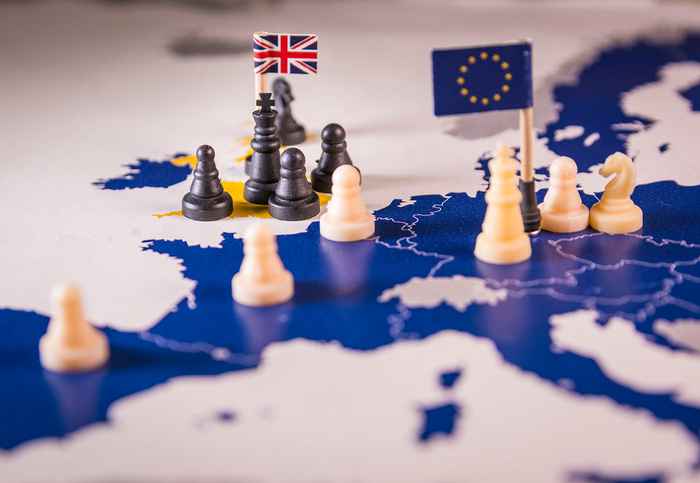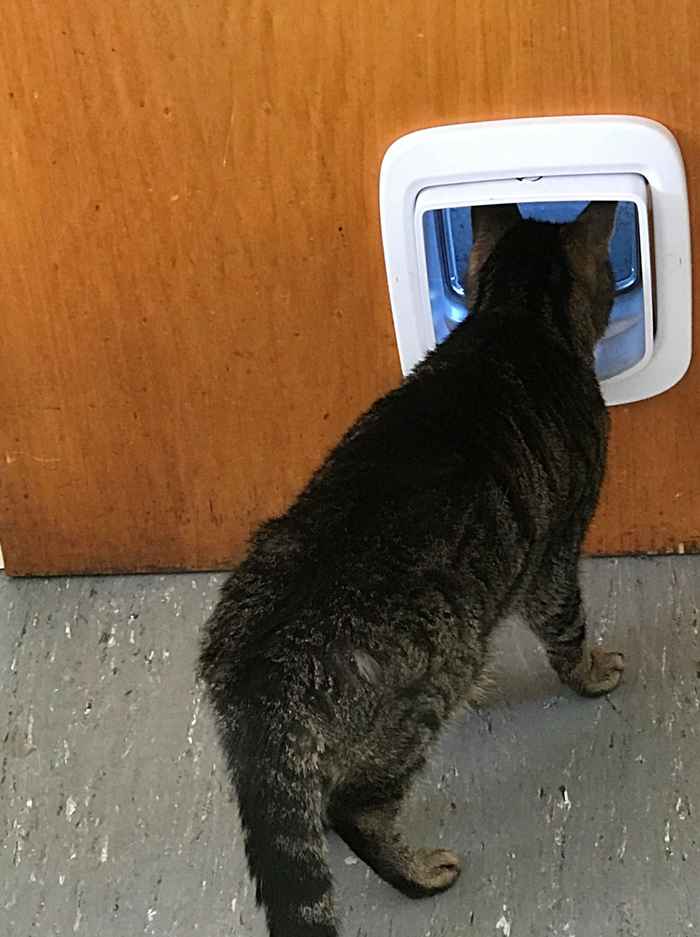The Brexit deal, a never-ending story
21 January 2021

1 January 2021 the Brexit deal came into effect, after months of negotiations, containing new rules for how the UK and EU will live, work and trade together. With Brexit expert Jonathan Zeitlin, UvA Professor of Public Policy and Governance and owner of a cat formerly named Brexit, we reflect on the deal and its impact. Want to first know the most important points of the Brexit deal, or meet the cat? Look at the end of this article.

There is a deal, but it is far from complete
‘The Brexit deal is basically an agreement on mostly tariff and quota-free trade in goods between the UK and EU with many open issues and loose ends. And every 5 years the deal has to be reviewed and potentially renegotiated. So, this deal is far from complete. Most obviously, the agreement does not cover some of the most important aspects of trade, namely financial and professional services, which comprise 80% of UK exports. We therefore have entered a phase in which the UK has to negotiate new agreements on many different areas with the EU, issue by issue. And for each issue the UK needs first to clarify its own regulations so the EU can decide if they meet European standards.’
A continuum between self-harm and surrender
‘From the beginning it was clear the UK had to choose along a continuum between self-harm and surrender. If the UK wanted to minimize self-harm, in terms of access to the EU single market, it had to comply with EU regulations. The more the UK diverged from EU rules, the more limited access it would obtain, and the more economic damage and self-harm would be inflicted. In the end the UK chose to accept some self-harm and obtain more freedom to diverge from EU regulations.’
‘But this freedom is far from unlimited, as the EU retains the right – subject to arbitration – to reimpose tariffs if the UK changes its social, labor, and environmental regulations or provides unfair state aid to domestic firms in ways that competitively disadvantage European producers. And in all the areas where no agreement has yet been reached – such as financial regulation and data protection – the UK will have to keep on maneuvering along this continuum between self-harm and surrender. Hence, Brexit remains a never-ending story.’

A no-deal Brexit would have caused much more damage
‘But what was achieved is that a no-deal Brexit has been prevented. No deal would have been economically much more damaging for all parties and would have created great uncertainty. In November 2020, the ING Bank estimated that a no-deal Brexit would have cost the Netherlands 2% GDP and a loss of 70.000 jobs over 10 years. The current deal is estimated to cost 0.7% of GDP and 17.000 jobs. In the end, there will be some damage for the Netherlands, but there will also be new opportunities through the financial services that are moving to Amsterdam and increased business for the Dutch logistics hub for export trade.’
The UK leaving the single market has led to empty shelves
‘One of the biggest difficulties for the UK is that they are no longer part of the single market for free movement of goods and services. When trading goods, the UK now must deal with regulatory barriers, local content requirements and rules of origin that define the zero tariffs policy. An item which comes from the Netherlands and is repacked in England and then shipped to Northern Ireland, no longer falls within these rules of origin and zero-tariff agreement. This has already led to empty shelves in supermarkets in Northern Ireland.’
Support for the EU has meanwhile increased across Europe
‘Public opinion data show that EU citizens increasingly support the EU. Also, in the political arena governments very visibly stood behind the EU in the Brexit negotiations, while support for leaving has fallen, even among populist parties. In countries like Poland and Hungary, where most resistance to the EU might be expected, as on issues such as migration and the rule of law, nobody is proposing a Pole- or Hungar-exit. At the same time of course, Euroscepticism remains strong, especially among political parties that resist greater EU integration or talk about opting out of specific new common measures.’
Fisheries: a microcosm of the whole situation
‘That fisheries played such a big role in the deal, is actually quite funny. Fisheries, which account for only a tiny percentage of all UK-EU trade, almost blocked the deal. In a way fisheries was a microcosm of the whole situation. It showed how much stronger the EU was in negotiations: the UK asked for 80% of fish caught in their waters, but ended up with only 25%. This agreement will last for five years, after which it will be renegotiated on an annual basis. But the EU then retains the right to impose tariffs on UK fish, 80% of which is exported to Europe.’
We need to keep an eye on the unity of the United Kingdom
‘What is actually now at stake is the unity of the United Kingdom itself. We have Scotland that always resisted Brexit and the Scottish National Party that is pushing for another independence referendum. And due to political and demographic changes the possibility of a united Ireland is increasing. Even in Wales we see a lot of discontent with how the British government is recentralizing power through Brexit.’
Also, the academic world is impacted by the Brexit deal
‘It is very sad that Dutch students who are attending British universities, a great experience for their academic careers, can no longer benefit from the same tuition fees as UK students. British universities will likely become too expensive for many of them. That also holds for UK students coming to the EU. That the UK stepped out of the Erasmus scheme (an EU scheme that helps students study in other countries) is also a loss. Through Erasmus, students came to feel more European and cosmopolitan, making international friendships, and sometimes love relationships, for life.’
The Brexit deal in short
Most important points of the Brexit deal:
- No tariffs or quotas for most categories of goods traded between the UK and the EU
- New checks at borders, such as visa requirements, customs declarations, and conformity with EU regulations (e.g. food and chemical safety)
- Businesses offering financial and professional services, such as banking, architecture and accounting, lose their automatic right of access to EU markets and face potential regulatory barriers
- UK will gradually gain a greater share of the fish from its own waters
- UK no longer directly subject to rulings of the European Courts, but may be taken to arbitration by the EU if it changes its social, labor and environmental regulations in ways that competitively disadvantage European producers
- UK no longer has automatic access to key security databases and is no longer a member of the EU's law enforcement agency, Europol
- The UK no longer participates in the Erasmus exchange programme